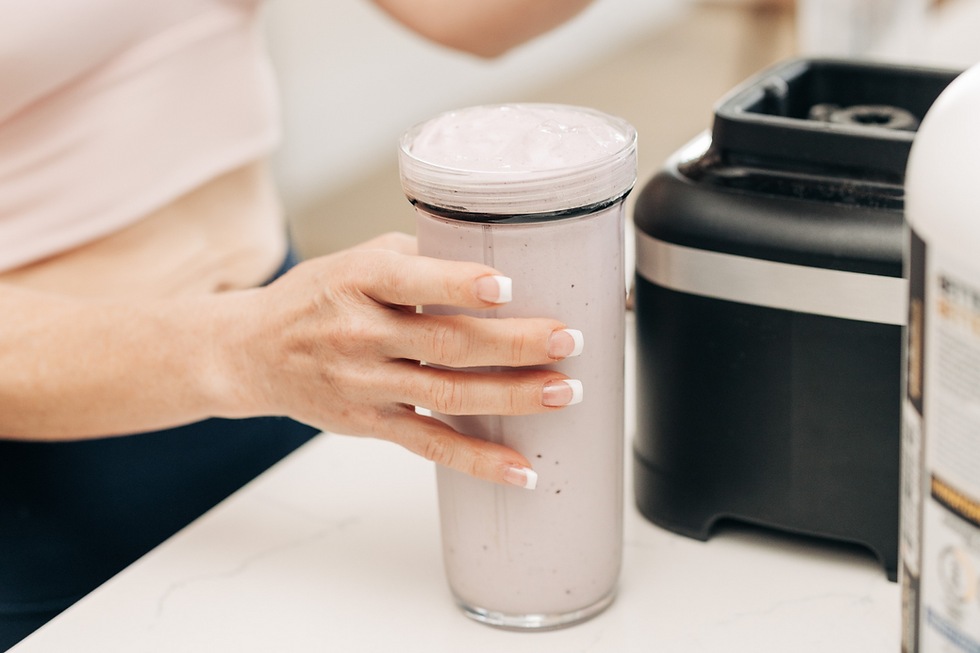Life-Changing Sugar Hacks: Why Your Blood Glucose Matters
- Brandi Smith
- Dec 26, 2023
- 2 min read
The term glucose is derived from the Greek word for sweet. From carrots to cupcakes, your body uses sugar for energy. As it travels through your bloodstream to your cells, it's called blood glucose, also known as blood sugar. Although blood glucose is critical for your body's functioning and provides a major source of energy for most cells, excessive levels can be damaging. Maintaining normal blood glucose levels is an important part of avoiding long-term health issues, managing weight and supporting overall well being.

Blood Glucose Levels
The body typically regulates glucose levels so that they remain within an appropriate range, helping to ensure there is enough glucose to fuel your cells, but not enough to overload your bloodstream.
It's typically for blood glucose levels to fluctuate throughout the day, but big swings can make you feel fatigued, and for those living with diabetes, the fluctuations can be more considerable and happen more often.
What impacts blood sugar levels? Several factors can increase blood glucose levels, including low physical activity, stress, illness and dehydration, but let's hone in on one of the biggest culprits: sugar. Sugar comes in various forms, including sucrose (table sugar), glucose and fructose, commonly found in fruits and vegetables, and lactose, which is in milk, cheese and ice cream. Beverages like a vanilla latte or soda can easily contain more than 40 grams of sugar (nearly 50 millilitres/10 teaspoons) per servings, which can cause a rapid blood sugar spike.
Even condiments like ketchup and barbecue sauce are often loaded with high-fructose corn syrup.
Eating right, in the right order
It stands to reason that decreasing your sugar intake can have a positive impact on your blood glucose levels. Also, it's not just the amount of sugar and excess carbohydrates you consume that matters, but the order in which you eat your food can also affect your health.
Starting the day with a matcha latte with oat milk sounds like a healthy alternative, but the inherent sugar in oat milk spikes blood glucose. Starting the day with low glycemic index foods, such as half an avocado and three organic eggs, will stabilize blood sugar and provide sustained energy, as the body takes longer to break down complex molecules of protein versus sugar or carbohydrates. Fruit as a snack in the middle of the day also spikes sugar levels. Try a few almonds or a hard boiled egg, followed by fruit, to keep blood sugar stable.
Starting a meal with potatoes, a starch-based carbohydrate, creates a huge blood sugar spike. But eating a meat or protein first, followed by the potatoes, noticeably lowers blood sugar response. Similarly, eating a salad with olive oil and vinegar prior to eating pasta caused a lower blood sugar spike or adding a protein source to pasta can also help manage blood sugar response.
So, what are some important sugar hacks?
Add protein, fat or both to balance out carbs
Order matters, so when possible, eat carbs or sweets last and add non-starchy vegetables, like salad before meals
Walk or exercise after a meal to help manage blood sugar spikes
You will be surprised just how great you can feel in just six to eight weeks of implementing these simple changes.
Need help with your nutrition? Schedule a free health strategy session with me today.




Comments